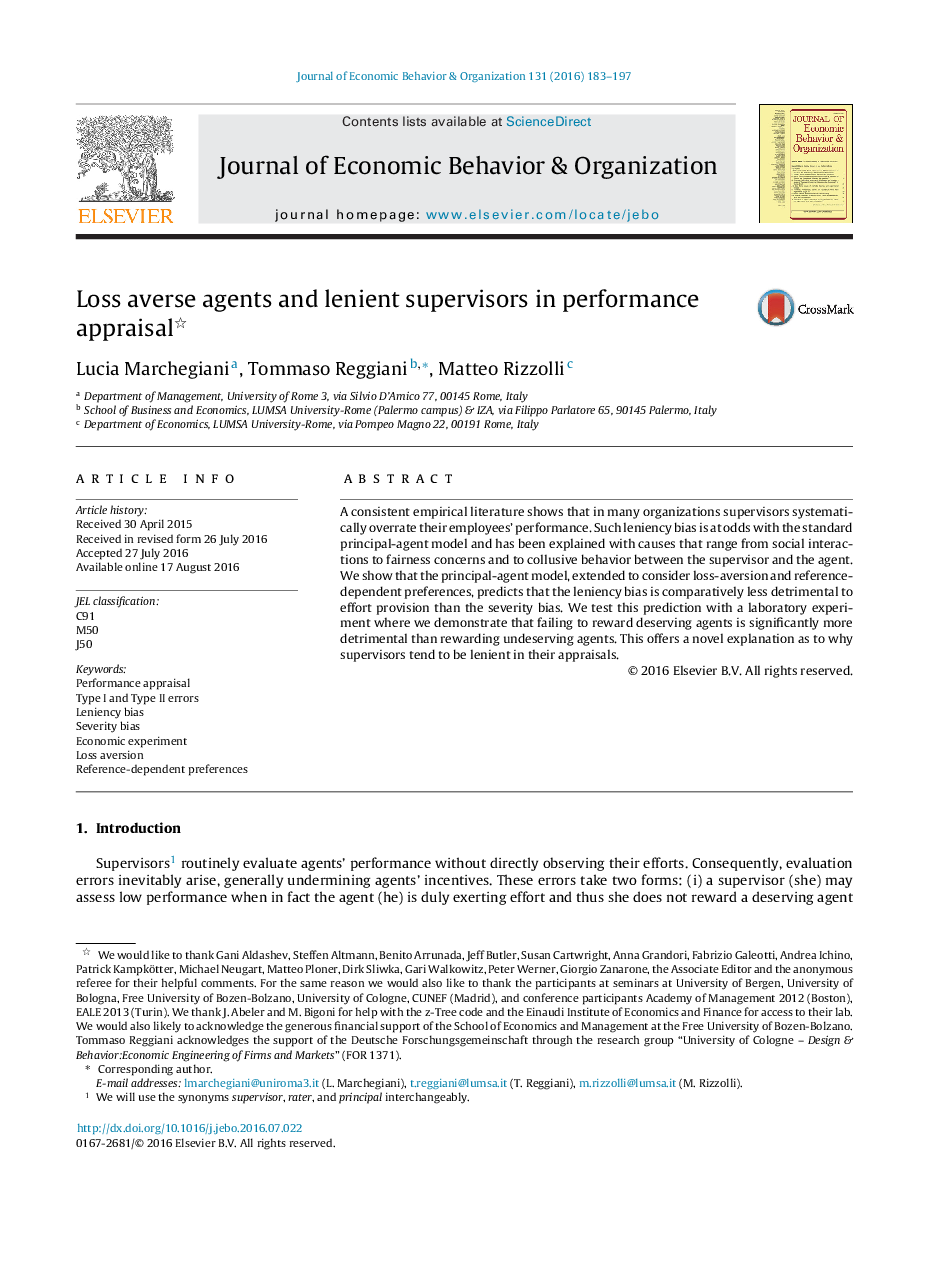| Article ID | Journal | Published Year | Pages | File Type |
|---|---|---|---|---|
| 5034690 | Journal of Economic Behavior & Organization | 2016 | 15 Pages |
Abstract
A consistent empirical literature shows that in many organizations supervisors systematically overrate their employees' performance. Such leniency bias is at odds with the standard principal-agent model and has been explained with causes that range from social interactions to fairness concerns and to collusive behavior between the supervisor and the agent. We show that the principal-agent model, extended to consider loss-aversion and reference-dependent preferences, predicts that the leniency bias is comparatively less detrimental to effort provision than the severity bias. We test this prediction with a laboratory experiment where we demonstrate that failing to reward deserving agents is significantly more detrimental than rewarding undeserving agents. This offers a novel explanation as to why supervisors tend to be lenient in their appraisals.
Keywords
Related Topics
Social Sciences and Humanities
Economics, Econometrics and Finance
Economics and Econometrics
Authors
Lucia Marchegiani, Tommaso Reggiani, Matteo Rizzolli,
